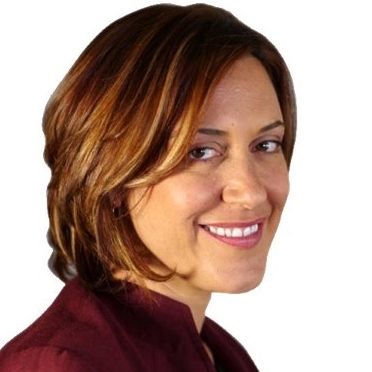
News

Who is sticking their nose into Israeli politics?
PAULA SLIER
Both spoke out against Israeli Prime Minister Benjamin Netanyahu’s recent announcement that he was forging an alliance with the extremist Jewish Power party, a descendant of the late American-born Rabbi Meir Kahane’s outlawed Kach party.
AIPAC said it had a “long-standing policy not to meet with members of this racist and reprehensible party” while the AJC also called its views “reprehensible”.
But talking to Israelis – regardless of whether or not they support Netanyahu or his outreach to this extremist party – most insist that it’s not for people outside of Israel to dictate internal politics.
“Come live in Israel, go to the army, pay taxes, face the same kind of daily terror we do, and then you can vote, and say what should or should not be done here,” is a common refrain I hear.
And until now, American Jewish leaders seemed in agreement. Their policy was not to criticise Israel publicly or its politics. But the radical platform of this minority party seems to have thrown that policy into disarray.
The Jewish Power party promotes racist legislation against all non-Jews, calls for the forced removal of Palestinians, and bans intermarriage between Israelis and Arabs. Ironically, it’s not the first time a party advocating such views could enter the Knesset (parliament).
Kahane himself served one term in the 1980s as head of the Kach party before his movement was banned in Israel because of its racist mandate. He was later assassinated in New York by an Egyptian-born American.
So why would Netanyahu court such a controversial party? The answer is simple – for his political survival. Even before his closest competitors, Yair Lapid of Yesh Atid and Benny Gantz of Israel Resilience, announced last week they were merging their parties, Netanyahu had already stated he was joining forces with Jewish Power.
No sooner had he made this announcement, than Lapid and Gantz confirmed they were uniting under the banner of the Blue and White party. They said they were motivated by “national responsibility”, and that their unity arrangement would effect a rotation leadership in which Gantz would serve as prime minister for two and a half years, followed by Lapid.
The latest polls expect the Blue and White party to win 36 seats in the 120-seat Knesset compared to Netanyahu’s Likud winning 31. No wonder then that the prime minister is not taking any chances, and is forging as many alliances as he can. His invitation to bring on board Jewish Power needs to be understood in this context. As long as the party is legal – and it is – it is entitled to exist and compete in a democratic country regardless of how reprehensible its views are to most people.
After all, this is the argument upheld by those who praise the fact that at the opposite end of the Israeli political spectrum – on the extreme left – are Arab and Islamist parties. In spite of supporting Israel’s enemies and opposing the country’s existence, their presence is quoted as proof of Israel’s democracy and freedom of speech.
What’s noteworthy is that AJC and AIPAC have never meted out any criticism of these Arab parties. Surely this smacks of double standards? Let’s be fair and criticise both extremes when they push the envelope too far. Or let’s keep mum on both. You cannot criticise the extreme right, and support the existence of the extreme left.
I am no fan of Kahane’s politics, but where was the condemnation from these American groups when Arab Knesset member Hanin Zoabi joined the 2010 Gaza flotilla, called Israeli soldiers “murderers”, praised Palestinians who carried out deadly attacks on Israelis, and met their families in solidarity?
Where was the condemnation when another Arab parliamentarian, Dr Bassel Ghattas, smuggled cell phones and sim cards to convicted Palestinians in prison? Or when Azmi Bishara, also a Knesset member at the time, was caught giving Hezbollah information about where its rockets were falling during the 2006 war between the sides?
Even the most liberal Scandinavian democracies would not allow political parties to call for the destruction of the country which they (supposedly) serve.
Come 9 April, once the ballots are in, Israeli President Reuven Rivlin is mandated to ask the party with the most votes to form the next government. Unless Gantz and Lapid’s Blue and White party can garner a parliamentary majority of 61 seats, it will fail to do so. Its immediate choice of partners is nothing special – a broken-up left-wing, confused centre, and largely anti-Zionist Arab list.
This means that either the Gantz-Lapid camp will have to shift right and merge with Likud and/or other right-wing parties, or Netanyahu might still be tasked with forming the next government even if he doesn’t win first place in the polls.
Gantz and Lapid insist that if the attorney general announces that he intends to indict Netanyahu for corruption, they will not join a government he heads. That said, it’s still early days, and a lot can change.
In the last elections, Jewish Power was only a few thousand votes short of passing the threshold to enter the Knesset. This time around, it looks like it will succeed. And while every democratic country is going to have parties one doesn’t necessarily like, it’s up to the people of Israel and not those living outside her borders to decide who they want sitting in their parliament.




